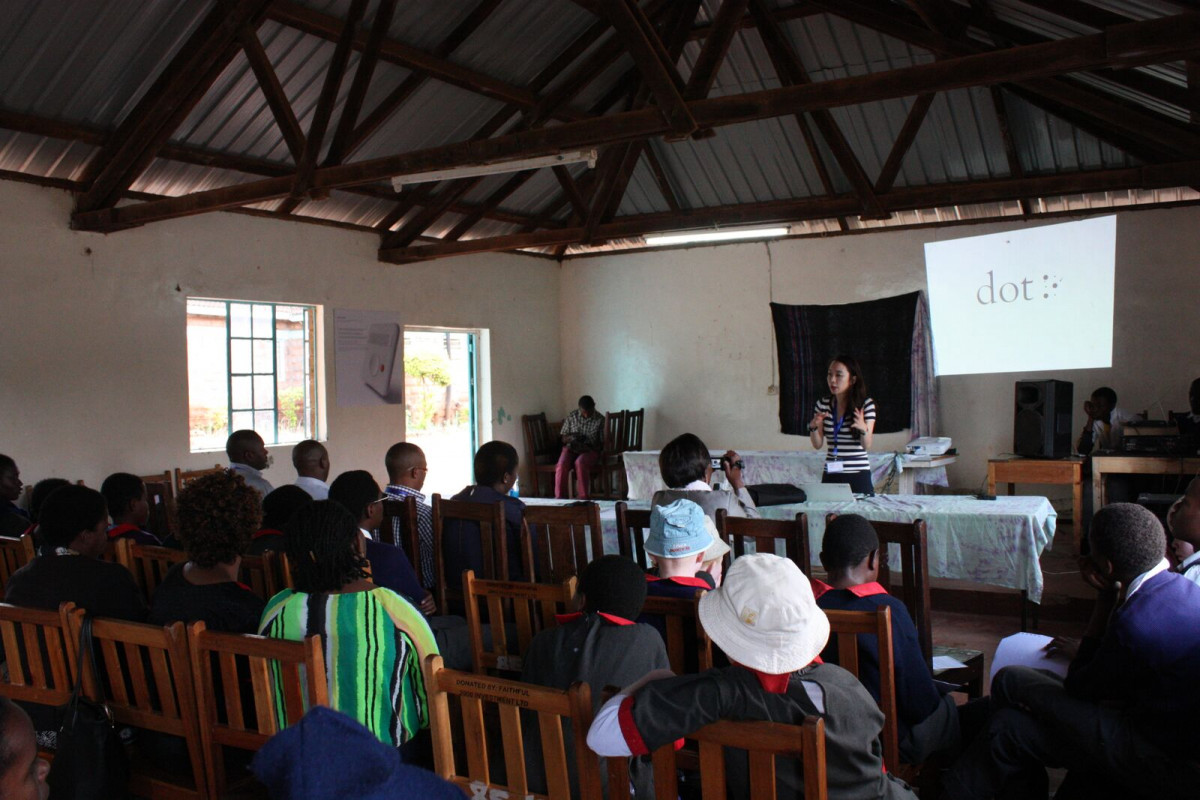PR/IR
News
News
Blog
- Date
- 2020.08.11 10:42
In November 2015, when the Dot Mini project kicked off and got rolling, all we had was 9 members and an ‘unknown technology.’ Although our hands were tied with the development of the Dot Watch we strongly believed that, “Dot Mini is a life-changing device that will become necessary for the education of visually impaired children.” The Dot cell, at 1/10 of the price of currently existing cells, is a creative innovation that will bring radical changes to the world. The true beneficiaries will be visually impaired (we are estimating around 75% will have access worldwide) people in the world – those with low-income.
From Dot Mini’s very beginning we were looking at how to improve. We decided to visit Kenya and get an understanding of how the Dot Mini could change the education environment, children’s future, and open up new possibilities for the visually impaired. In Korea, we asked how the Dot Mini can make a difference in the everyday life of a person who may have to work around their visual impairment on a smaller budget. For the past year and a half, we have shared our vision with the Korean government, the global press, local agencies & distributors, and our partners & investors. We have continuously shown the seeds of Dot Mini’s future.
When we were selected for the KOICA CTS SEED 2 project, on June 29, 2017, it was proof of Dot Mini’s importance to the people of Kenya (SEED 1 activity). This was an appreciated outcome, after five trips to Kenya and 30+ reports every quarter. Looking deeper, it was much more than mere papers and mileage; it was saying “hello” to many people we met in Kenya. It meant visiting rural schools for the visually impaired for the beta testing. Moreover, I am personally grateful we did not let down the CTS team, their faith and support in our work.
Our mission now, for the SEED 2 project, is to distribute 500 Dot Mini (free of charge) to four schools for the visually impaired, in Kenya, and to validate the result. Furthermore, it is an opportunity to let others, in Africa, India, and other schools for the visually impaired in Asia, as well as the rest of the world, know more about the importance and the necessity of the Dot Mini. This will create an aware society and government regarding the importance of education and the visually impaired. It will help to establish a network of self-learning for the low-income-visually impaired who cannot afford to buy such devices such as the Dot Mini. This is possible by using SD card/USB to upload textbooks, books, and various contents to the device. Then individuals can learn to read by listening, speaking along, and reading with the words emitted from the device.
People may set a goal, but once it is set, it’s the goal that motivates a person. If a person realizes how beautiful the ocean is, they might build a ship and set sail themselves without being told to do so. Just like what Antoine de Saint-Exupéry once said about how beautiful our world could be. We too will make a ship with dreams and set sail to the continent of Africa, and beyond. By the end of this voyage, I hope that students with visual impairment from Africa to India will not give up and continue their studies.



 Prev
Prev
 Next
Next









